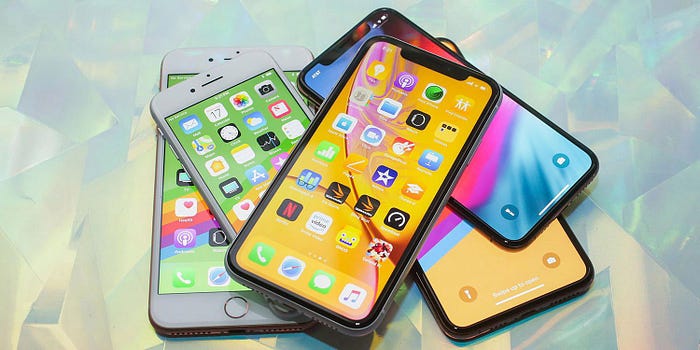Is Having a Smartphone a Requirement in 2022?

For many people a smartphone is indispensable — as necessary as food and water. Others, however, may not see the appeal. According to CNBC, for example, Warren Buffett used a flip phone for years before finally upgrading to an iPhone in 2020. This raises an important question: Is a smartphone a necessity in 2022? There are several strong arguments to be made in favor of smartphones as a requirement, though affording one may not be realistic for everyone.
KEY TAKEAWAYS
- An estimated 85% of Americans use a smartphone, according to Pew Research.
- Smartphones can be necessary for a variety of reasons, ranging from online security to gaining entry to beaches and other recreational areas to riding public transportation.
- Owning a smartphone may be challenging for lower-income households, though there are programs that can provide financial assistance.
- As more people live digitally, it stands to reason that smartphones will only become more important in the future.
Smartphone Ownership and Use
Smartphone ownership has grown tremendously over the past decade. According to the Pew Research Center, 35% of Americans owned a smartphone in 2011, and that figure grew to 85% by 2021.
Men and women tend to own smartphones in equal numbers, though Americans under 65 are more likely to have one. Ninety-six percent of young adults aged 18 to 29 own a smartphone, versus 61% of adults aged 65 or older. Smartphone users also tend to live in urban areas (rather than suburban or rural), have a college degree, and make $75,000 a year or more.
The Case for Smartphones as a Requirement
It’s easy to say that smartphones are a luxury rather than a necessity. After all, people managed to live without them for centuries. Nevertheless, that dismisses a number of changes that have taken place in how people work and live.
Smartphones in the workplace
The increasingly digital nature of the workplace presents the first example of why smartphones should be considered a requirement rather than an option. As more companies use cloud technology to store information and online platforms to keep workers connected, it presents a need for enhanced security protections. Innovations such as two-factor authentication (2FA), also known as “multifactor authentication (MFA),” make that possible. MFA allows employees, including remote workers, to securely access digital platforms by entering a code, and a key requirement for using it is a smartphone.
Employees who are interested in remote work and independent contractors who work from home will likely need smartphones. Security aside, smartphones can also be vital for staying connected with work through messaging apps or tools such as Zoom.
If your employer requires you to have a smartphone for work that you pay for, ask whether any of those expenses are reimbursable.
Smartphones for recreation and travel
Smartphones could also be considered a requirement if you travel or engage in recreational activities. For example, the state of New Jersey now issues beach access badges through the Viply app. This allows travelers and tourists to bypass otherwise long wait lines to get seasonal, daily, or weekly beach passes.3
Disney World visitors can download an app that allows them to reserve and pay for contactless dining, navigate the park, and access MagicBand features. The app also features direct-to-room services when staying at Disney Resort Hotels.
Aside from those types of apps, there are other apps that can make travel easier. For example, if you’re catching a flight, your airline may give you the option to download a mobile boarding pass so you can skip the check-in lines. More chain hotels are also offering mobile apps that let you check in and out via your smartphone instead of the front desk.
The New York City Metropolitan Transport Authority (MTA) is planning to replace fare cards for subways and buses with the OMNY payment system by 2023. Using it will require either a contactless credit, debit, or prepaid card or a smartphone or smartwatch equipped with a digital wallet. If you don’t have one or the other, you won’t be able to ride public transportation in NYC.
Smartphones for healthcare
Healthcare is another area where smartphones are becoming increasingly important. Telehealth apps, for instance, allow people to chat with a physician live without leaving home. These types of apps could be vital for someone who has ongoing health issues but can’t always visit a doctor in person. You can also use a laptop or desktop for telehealth, of course.
